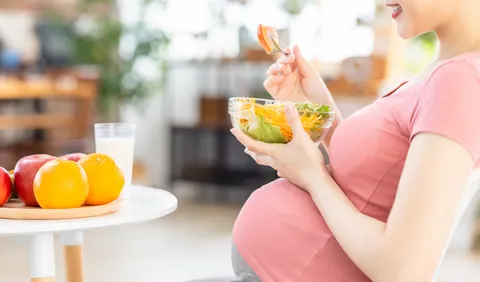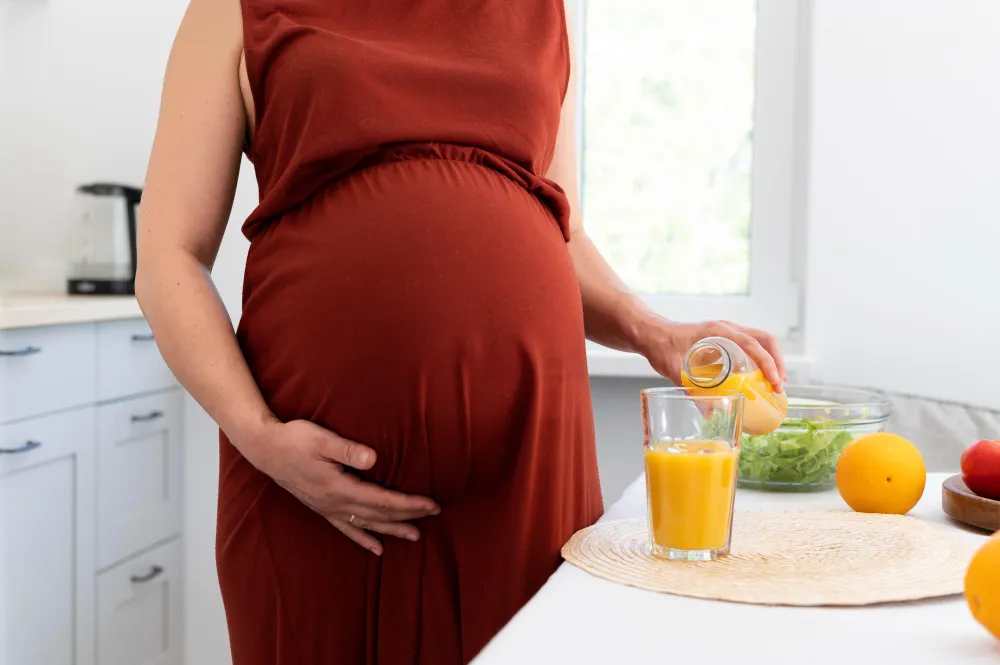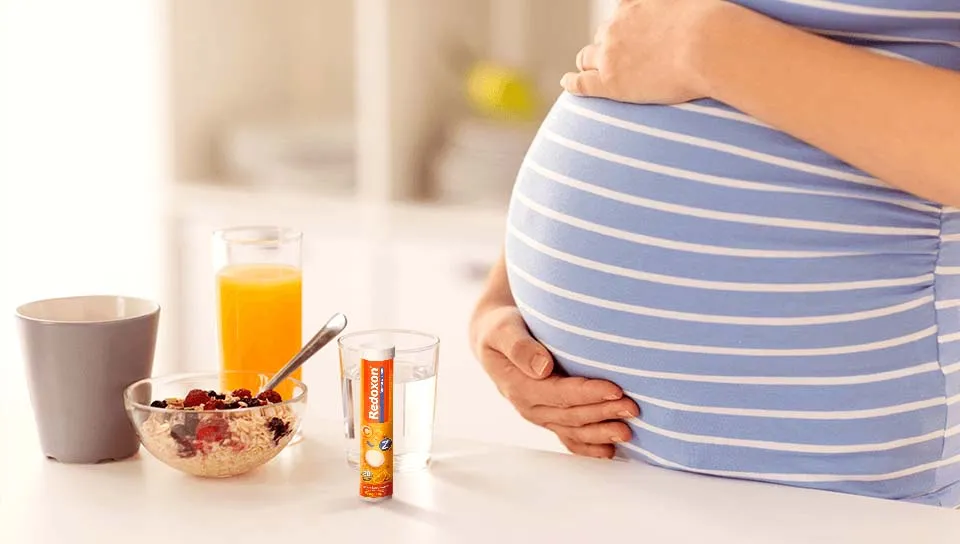Getting down to it, is Vitamin C safe during pregnancy? This may be a probability, but of course, there’s a chance to learn about the benefits, risks, and how to best incorporate this vital nutrient into your diet for a healthy baby, so read on.

Pregnancy is a wonderful experience with lots of questions regarding health and nutrition. One of the frequent questions asked by pregnant women is if Vitamin C is safe to use during pregnancy.
The good news? Yes, Vitamin C is healthy and safe for both the mother and the growing baby. It assists in supporting the immune system, improving iron absorption, and creating healthy skin and tissues.
So, as with all things, it must be consumed in moderation. Too much consumption of vitamin C can produce some side effects. In this article, we shall talk about the uses, safe levels, best sources, and what to watch out for while consuming Vitamin C during pregnancy.
What is the Significance of Vitamin C During Pregnancy?
Vitamin C, also known as ascorbic acid, is a water-soluble vitamin that helps the body function properly. It is essential in pregnancy because it:
1. Boosts the Immune System
Pregnant women need a strong immune system to protect themselves and the baby from infection.
2. Helps in the Development of the Baby
Vitamin C helps develop the baby’s bones, cartilage, and skin.
3. Facilitates Iron Absorption
Iron is essential to avoid pregnancy anemia. Vitamin C helps the body absorb more iron from food.
4. Acts as an Antioxidant
It protects the cells from damage and reduces inflammation, which keeps the mother and baby healthy.
5. Promotes Healthy Skin
It helps form collagen, which keeps the skin firm and healthy and reduces the tendency to get stretch marks.
How Much Vitamin C Do Pregnant Women Need?

According to health experts, the recommended level of Vitamin C for pregnant women is:
- Pregnant Women (18 years and below): 80 mg per day
- Pregnant Women (19 years and older): 85 mg per day
- Breastfeeding Women: 115-120 mg per day
The majority of people can get enough vitamin C from a well-balanced diet. Some women may need to take supplements, especially if they are not consuming enough vitamin C foods in their diet.
What are the Best Natural Sources of Vitamin C?
The best way of getting the right amount of vitamin C is to eat a healthy diet. Some of the best natural sources include:
1. Citrus Fruits
Oranges, lemons, grapefruits, and limes are packed with Vitamin C.
2. Berries
Strawberries, blueberries, raspberries, and blackberries are very good sources.
3. Tropical Fruits
Pineapple, papaya, mango, and kiwi are packed with Vitamin C.
4. Vegetables
Bell peppers, broccoli, spinach, and tomatoes also contain lots of Vitamin C.
5. Other Sources
Potatoes, cauliflower, and Brussels sprouts provide additional Vitamin C.
Eating these foods as a regular part of your diet during pregnancy can help you have the right amount of Vitamin C when you are pregnant.
Can You Take Vitamin C Supplements During Pregnancy?

Yes, but with caution. Although vitamin C supplements are harmless, their over-intake can result in health complications and some unwanted side effects. It’s always advisable to consult with your doctor before taking any supplement.
Some prenatal vitamins already contain Vitamin C, and supplements may not be necessary unless prescribed by a physician.
What are the Dangers of Too Much Vitamin C During Pregnancy?
Though Vitamin C is essential, its excess can cause:
1. Stomach Problems
Too much can cause diarrhea, nausea, and stomach cramps.
2. Increased Risk of Kidney Stones
Too much vitamin C can lead to kidney stones.
3. Vitamin C Withdrawal in Infants
If a pregnant woman takes very large doses, the baby can, after birth, develop “rebound scurvy,” i.e., the baby will have difficulty in manufacturing enough Vitamin C on its own.
To avoid these dangers, one must not take more than the recommended daily dose.
Does Vitamin C Prevent Pregnancy Complications?
Some people have suggested that Vitamin C prevents pregnancy complications such as preterm birth and preeclampsia. Research has not supported this.
Though it is good for general health, taking too much will not specifically prevent pregnancy complications. The secret is to eat a balanced diet and adhere to the instructions of your doctor.
Is Vitamin C and Iron a Perfect Couple?
Vitamin C has one of the biggest benefits during pregnancy in that it helps the body absorb iron. Iron is needed to produce red blood cells and prevent anemia, which is a very common condition in pregnant women.
If you are on iron supplements, the intake of vitamin C-rich foods like orange juice along with them can enhance its absorption and help the supplement be more effective.
What are the Symptoms of Vitamin C Deficiency During Pregnancy?

Vitamin C deficiency is rare, but if you are not taking enough, you may see:
- Fatigue and weakness
- Dry skin
- Delayed wound healing
- Bleeding gums
- Increased risk of infections
To prevent deficiency, make sure you eat a lot of foods that contain Vitamin C or take supplements if you need to.
Last Lines
Yes! Vitamin C is not only safe but also healthy for pregnant women. It supports a healthy immune system, helps in the growth of the baby, and increases the absorption of iron.
If you’re unsure whether you’re getting enough Vitamin C or if you’re considering taking a supplement, talk to your doctor. They can recommend the best sources and correct dosage for your needs.
But then moderation is the key. Getting Vitamin C from natural food sources is the best method of guaranteeing a healthy pregnancy, and supplements should be taken only if necessary and under medical supervision.
Also, if you feel any side signs after taking Vitamin C supplements, such as stomach pain or diarrhea, stop taking them and visit your doctor immediately.
With a properly balanced diet filled with fruits and vegetables, you can be sure that you and your baby get all the necessary nutrients for a healthy and happy pregnancy!
